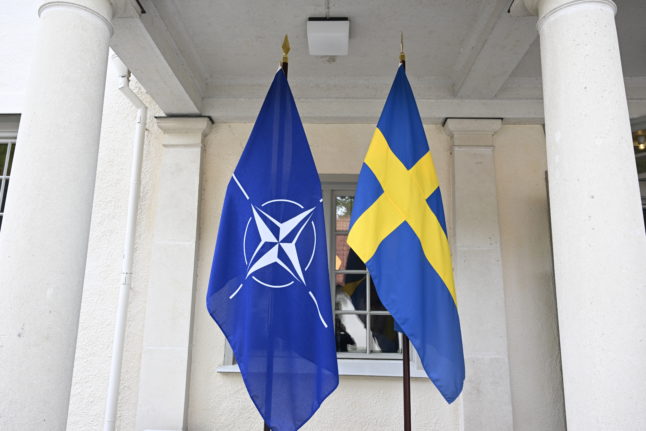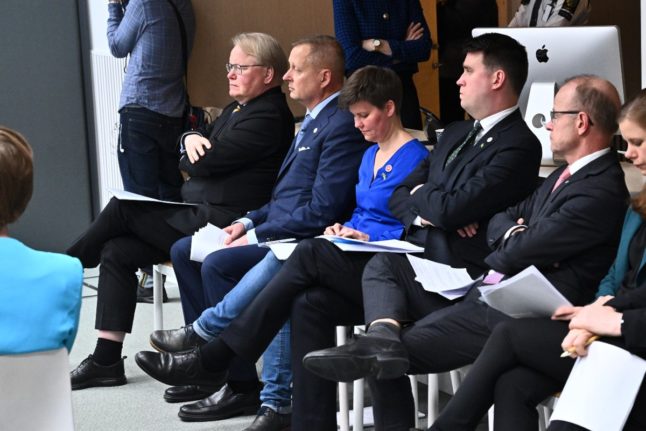But Turkey said the four-way meeting, which will also involve NATO chief Jens Stoltenberg, did not mean that Ankara was close to lifting its objection to the two Nordic countries joining the military bloc.
The four leaders will meet in Madrid, in a last ditch bid to break to deadlock before the start of the alliance’s summit, which will focus on Russia’s invasion of Ukraine.
Officials from Ankara, Helsinki and Stockholm held a fresh round of talks on Monday at NATO’s headquarters in Brussels to try to hammer out the differences.
“My strong hope is that this dialogue can be successfully concluded in the near future, ideally before the summit,” said Swedish Prime Minister Magdalena Andersson after meeting Stoltenberg in Brussels.
Russia’s invasion of Ukraine earlier this year saw the two Nordic countries abandon decades of military non-alignment by applying for NATO membership in May.
But the joint membership bid, initially believed to be a speedy process, has been delayed by objections from NATO member Turkey.
‘Safe haven’
Ankara has accused Finland and Sweden particularly of providing a safe haven for outlawed Kurdish militants whose decades-long insurgency against the Turkish state has claimed tens of thousands of lives.
The Turkish leader has also called on Sweden and Finland to lift arms embargoes imposed against Turkey in 2019 over Ankara’s military offensive in Syria.
Erdogan signalled on Saturday that no progress had been made in Sweden’s bid to join NATO, urging Stockholm to take “concrete actions” to meet Ankara’s concerns.
Andersson insisted at NATO on Monday that “Sweden is not and will not be a safe haven for terrorists” and said Stockholm had sought to address Turkish concerns over extradition requests lodged by Ankara.
“The relevant authorities work intensively in order to expel persons who could be a security threat,” Andersson said. “And there are a substantial number of cases which are currently being processed.”
Turkish officials said Ankara does not view the summit as a final deadline for resolving its objections. Erdogan’s chief foreign policy adviser said Tuesday’s four-way meeting did not mean that an agreement was imminent.
‘Serious changes’
“Participating in this summit does not mean that we will step back from our position,” Ibrahim Kalin told HaberTurk channel. “We are conducting a negotiation. It has many stages.”
Kalin said Finland and Sweden needed to make “serious changes” to their laws “and constitution” — targeting outlawed Kurdish militants.
“We want you to show the same change against the PKK and its affiliated YPG, PYD and similar structures,” he said, referring to Kurdish groups operating in Syria and Iraq.
Stoltenberg insisted that Sweden had “taken concrete steps in recent days to directly address Turkey’s concerns”.
“You have already amended Swedish law. You have launched new police investigations against the PKK and you are currently looking at Turkish extradition requests,” he told Andersson.
“These concrete steps represents a paradigm shift in Sweden’s approach to terrorism.M



 Please whitelist us to continue reading.
Please whitelist us to continue reading.
Member comments